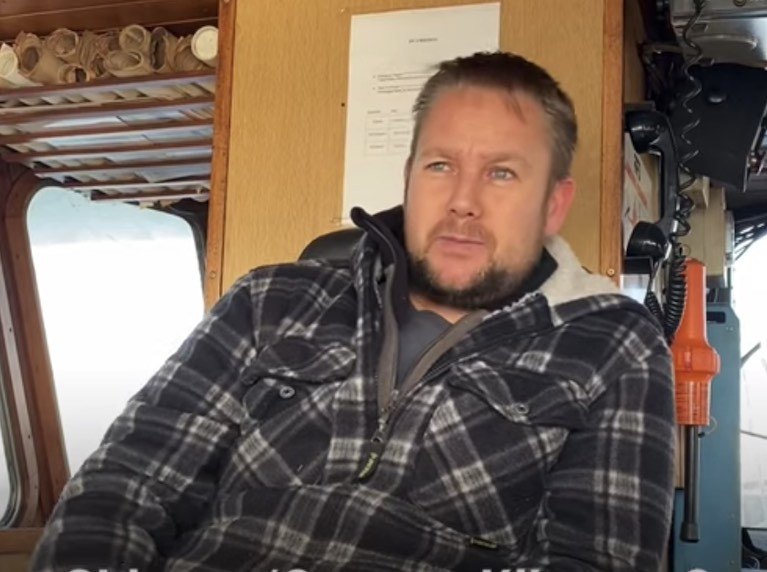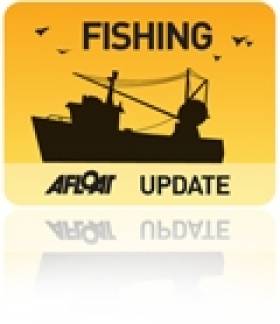Displaying items by tag: Scallop
Brexit Impact on Irish Fishing Industry Requires Dedicated Marine Minister
As details emerge on the full negative impact of Brexit on the Irish fishing industry, two Wexford skippers have called for the appointment of a dedicated minister for marine.
Scallop skippers Will Bates and Seamus Molloy who fish from Kilmore Quay have welcomed Taoiseach Micheál Martin’s appeal for “progressive ideas” from the fishing industry.
However, they have said the government must have a Cabinet member whose sole task is to provide leadership in relation to the difficulties facing the Irish marine sector.
 Seamus Molloy - Kilmore Quay Scallop fisherman. Screenshot: Sean Moroney
Seamus Molloy - Kilmore Quay Scallop fisherman. Screenshot: Sean Moroney
Ireland must start “taking back”, given that it will represent some 12 per cent of EU waters – but with “30 per cent of fishable waters”, the fishermen have said.
"Ireland should seek a share of the bluefin tuna quotas allocated to other EU member states"
As a first step, Ireland should seek a share of the bluefin tuna quotas allocated to other EU member states, given that the migratory fish spend up to four months off this coast, they say.
Under the Brexit deal finalised on Christmas Eve, the EU is handing back 25 per cent of its share of the catch in British waters.
There will be a five-and-a-half-year transition period, after which both sides will hold annual negotiations on some 100 shared stocks from 2026.
Seán O'Donoghue, chief executive of the Killybegs Fishermen’s Organisation (KFO), said the deal demonstrated the “duplicitous nature of the protracted negotiations” and that the “repeated guarantees” given to Irish fishermen had effectively been shredded.
The four and a half years of agreements have for all intent and purposes been “dishonoured by the negotiators” the KFO leader has said.
The reaction of the Kilmore Quay skippers can be heard on Wavelengths below
#scallop – The Minister for Agriculture, Food and the Marine, Simon Coveney T.D. today announced that measures to manage scallop fishing in Blacksod Bay Special Area of Conservation (SAC) had been signed into law. The measures aim to mitigate the risks, of fishing for scallop with dredges, to sensitive habitats within the Bay so as to protect and maintain these habitats.
Speaking about the Fisheries Natura Declaration for Blacksod Bay in Co. Mayo, the Minister said "Blacksod Bay contains habitats which are particularly sensitive to certain fishing activities and it is important that measures are put in place to manage the scallop fishery in this case. The quality and preservation of our marine environment is vital to the sustainability of our seafood sector and I commend the North West Regional Inshore Fisheries Forum for its work in bringing stakeholders together to address the risks posed by scallop fishing to the Blacksod Bay SAC. Stakeholder involvement is a critical success factor in developing and implementing meaningful fisheries management measures to facilitate fishing in harmony with the protection of sensitive habitats in our bays."
The Fisheries Natura Declaration gives legal effect to a risk mitigation plan prepared in partnership between the Marine Institute, the North West Regional Inshore Fisheries Forum and representatives of the fishing interests in Blacksod Bay. The measures in the Declaration include defining the footprint of the fishery to a specified zone; restricting fishing for scallops to a season from October to February inclusive and requiring fishing boats to carry GPS monitoring devices while fishing for scallop to demonstrate compliance and to contribute to data for scientific purposes. GPS monitoring devices are being funded, on a limited basis, by the Marine Institute. The Declaration and the mitigation plan will be published on www.fishingnet.ie.
The Minister re-iterated his commitment to ensuring that Irish seafood is produced in an environmentally-responsible way and stated "I have allocated almost €10 million through the Seafood Development Programme 2014-2020 to support implementation of EU environmental law, to help protect vulnerable habitats and species and ensure that our seafood sector continues to operate and grow in a sustainable manner. This investment will target a range of actions including data collection, scientific research, the use of environmentally-friendly gear and mechanisms to raise awareness of the importance of protecting the marine environment."

























































